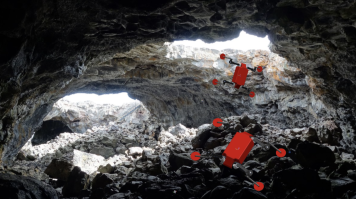The goal of this project is advancing the technology readiness level of climbing robots. The fundamental challenges should be investigated and addressed with the development of dedicated hardware, with a particular focus on adhesion devices. The findings should be eventually integrated into a platform and tested in a relevant scenario. Wheeled systems show limited capability when it comes to slopes, vertical and overhanging walls, soft-soils, and low gravity scenarios, which are in the way of high -priority targets for future planetary exploration. Climbing robots could help to overcome these limitations and increase the range of traversable terrains. The critical feature for enabling climbing motion is the capability of producing an adhesion force on the wall. The development of adhesion devices (feet) will be the main focus of this project. Micro-spine based grippers showed promising results on rock walls. However, the performances of the current implementations still require large contact surfaces, leading to bulky and inconvenient designs, which contrast with the compact morphologies of animals’ hands and claws. Underactuation, compliant structures, smart materials, and morphological computation are some of the strategies that could improve the state of the art. Other adhesion and actuation principles, such as chemical adhesion and granular jamming, should be considered. Multi-modal approaches should be evaluated: either by having different adhesion principles working alternatively, to enhance versatility or in parallel, to achieve synergetic effects. Other aspects of the design will comprehend the legs’ topology and kinematics, together with the actuation, which will be investigated and optimized for versatility, energy efficiency, and robustness. The control strategy will leverage internal forces and the terrain features to improve locomotion. Perception will be integrated for optimal foothold selection and route planning.

